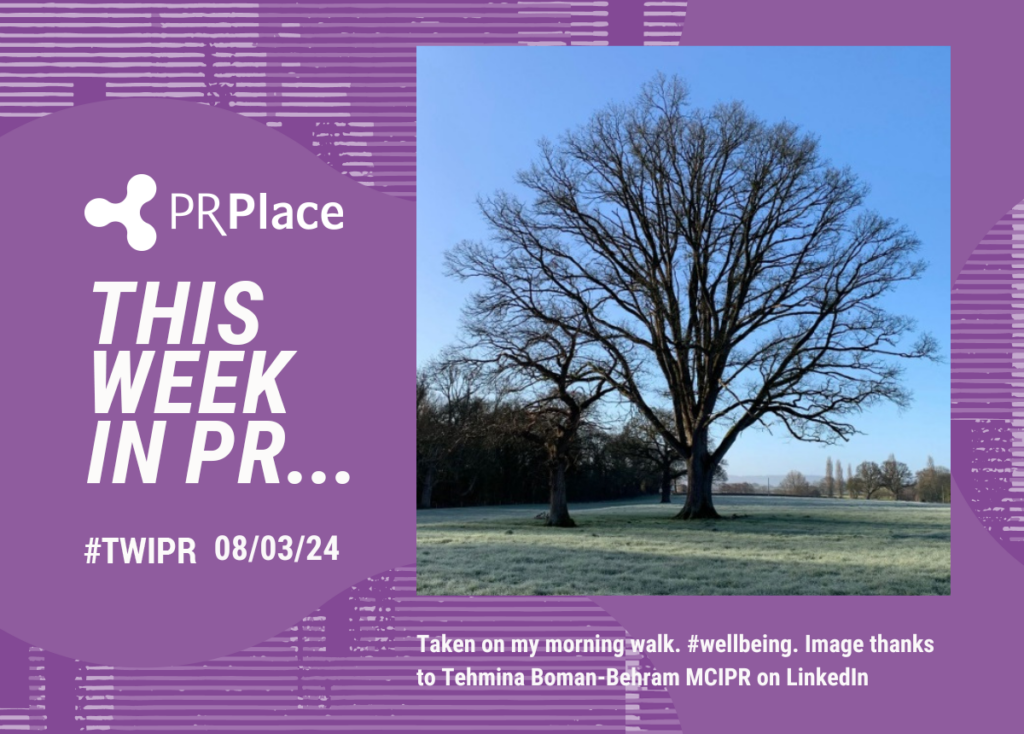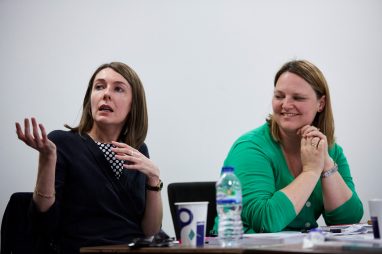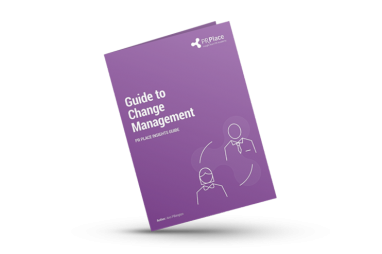This week in PR (8 March)

About the author
Richard Bailey Hon FCIPR is editor of PR Academy's PR Place Insights. He teaches and assesses undergraduate, postgraduate and professional students.

It happened this week
- The International Public Relations Association (IPRA) has appointed a panel of academics to prepare its Ethical Guidelines for Artificial Intelligence in Communications. This follows previously published ethical guidelines from CIPR and international consultancy organisation ICCO among others.
- Taylor Bennett Foundation, the charity that exists to encourage BAME graduates into careers in PR has appointed one of its own alunmi as its first chief operating officer. Rebecca Ferguson was on the scheme in 2018.
Consulting, skills and careers
- Jenny Pape: The power of conversation (7 March)
‘The power of a conversation plays a pivotal role in recruitment and relationship building. Connecting people is my superpower – it’s like being a matchmaker for ideas, opportunities, and partnerships. Whether it’s colleagues, candidates, or clients (they of course could all be one of the same), I act as a bridge that brings people together, all thanks to the natural conversations I’m having day in, day out.’ - Catherine Ritchie: Becoming a Chartered PR helped me overcome my imposter syndrome (6 March)
‘Despite working on chunky strategic projects, crises and transformations, it’s hard to shake the feeling of wondering when you’ll be found out.’
- Emma Duke: Silence (6 March)
‘Silence is incredibly powerful in PR and Communications too. Because again, it’s listening. How do you create two-way dialogue if you’re not listening?’ - Jennifer Wu: Weatherproofing your PR career is critical in the current climate (5 March)
‘Traditionally, when we enter the workforce, our focus is on climbing that corporate ladder to get to the big corner office. Well, those offices are gone and have been replaced with hybrid working and open floor plans. These days, the best types of leaders are the service-oriented ones who work in lockstep with their team.’ - Adam Mack: Stop asking us to ‘reach everyone’ (4 March)
‘The rise of the streamers and of social media platforms means that the attention of ‘everyone’ we’re often asked to ‘reach’ is spread so thinly across so many platforms that reaching them all would be a miracle akin to taking a moonshot and actually hitting the moon. From the sun.’ - Chris Taylor: Eyes, ears and mouth – the three most important communication tools for any infrastructure project (1 March)
‘Nobody dreams of starting construction work without a clearly agreed plan to work to, but far too many organisations still leave communications as an ad hoc task.’
Gender, diversity, health and wellbeing
- Rupa Bharadva: Empowering women in the workplace through internal communications (6 March)
‘An equitable workplace ensures that every colleague has fair access to resources, opportunities and benefits, regardless of their background, identity, or status. It’s not about treating everyone in exactly the same way.’ - Sara Thornhurst: Superpower, power or privilege? (1 March)
‘Neurodivergent people are, like disabled people, people. People with strengths, weaknesses, likes, dislikes and different ways of doing things and existing in the world.’
Politics, public affairs and public sphere
-
- Portland PA and Policy Team: A no-thrills budget (6 March)
‘All eyes were on whether the Budget would provide a solid indication of whether we are imminently heading towards a May General Election.’ - Lynn Group: Deconstructing Conspiracies: 15 Minute Cities (6 March)
‘Frequently recurring themes in conspiracies against 15 minute cities include loss of personal freedoms, government overreach, mass surveillance, lockdowns and hidden ‘globalist agendas’. - Feidhlim Macauley: Peer-ing into the future (1 March)
‘Having a conversation with an eminent pollster on the polling day of a byelection is a dream for most political junkies. Here at Headland we were lucky enough to get the chance to do so when one of Britain’s most prominent psephologists, Lord Hayward, joined us this week for a lunchtime fireside chat.’ - Nathalie Dixon-Young: Spring Budget – Moving the political dial (6 March)
‘Today’s heavily trailed Spring Budget demonstrated the difficulty the government will have in moving the political dial before the General Election.’
- Portland PA and Policy Team: A no-thrills budget (6 March)
Brands, content, community and creativity
- James Herring: I’ve floated big things down the Thames. This is my story… (5 March)
‘Floating something down the Thames is expensive, requires extensive permissions and comes with the environmental challenge of recycling a giant poly-sculpt that’s coated in several layers of waterproof varnish.’ - Annabel Gerrard: The Rise of AI in Content Drafting (1 March)
‘AI search engines go beyond basic keyword matching by analysing context among other factors to give relevant insights you might have missed. This means discovering unexpected angles, niche trends, and new ideas that grab attention and that you can now utilise to create compelling content that will resonate and engage.’
Crisis, risk and reputation
The #RedBull #formula1 comms team this morning…
“You want us to announce what, one day before #IWD”
HR: “this https://t.co/r0MYtJsgoS, how do you think it will play out in the media?”— Andy Barr (@10Yetis) March 7, 2024
-
Andreas Christophorou: From ‘no go’ to ‘go to’ in 24 hours – how Tower Hamlets embraced a media storm (7 March)
‘I did not expect an MP to be referring to ‘no go’ areas in our borough last week. Sadly I have experienced this kind of comment several times. When I first started here there was an article in an US newspaper saying our no drinking zones were because of Sharia Law….’ - Amanda Coleman: Is crisis communication important? (7 March)
‘PR and communication teams are really stretched in most organisations but this should not mean we neglect to develop or review the crisis communication approach, plans, policies and procedures.’ - Jessica Pardoe: Why AI Will Never Replace Proper PR Professionals (5 March)
‘The whole [Willy Wonka] thing has served as a textbook lesson as to why we can’t trust automation to do everything for us.’
- John Harrington: ‘A horror story’ – PR Week Power Book choose worst PR performers (4 March)
‘PRWeek asked members of the 2024 UK Power Book which organisation or individual has managed their reputation most poorly in the past 12 months – we list the most popular answers.’
Internal communication
INTERNAL COMMUNICATION DIPLOMA
- Sarah Browning: 4 communication skills for leaders (6 March)
‘Without effective communication, an organisation will not succeed: employees will be confused, disengaged, not know what they are doing, work in silos. It’s not just down to the leader to be a good communicator, but the tone has to be set from the top.’
- Comms2point0: SLAs for internal comms – the pros and cons (5 March)
‘Four top comms leaders share their experiences and insights on why you should – or shouldn’t – put service level agreements (SLAs) in place in your organisation to help to manage expectations and ensure resources are used on your most important priorities.’
- Joe Chick: Chapter 1 of the History of Internal Communication (1878 to 2024): Nineteenth-Century Origins (no date)
‘The roots of internal communication can be traced back to the nineteenth century. Society at this time was undergoing dramatic change, with technological advancements and more complex organisational structures. Out of this emerged the first forms of internal communication in the form of company magazines.’
- Rachel Miller: Podcast: Introducing The MILLER Framework (3 March)
‘If we’re doing our job well we should be surrounded by measurement. And the key thing for me is: what do we do with it?’
- Jo Moffatt with Mike Pounsford, Kevin Ruck and Howard Krais: Leading the Listening Organisation [podcast] (28 February)
‘Employee voice tends to look at the role of unions and work councils, whereas we’re looking at direct voice between employees and their leaders. Employee voice places the emphasis on employees speaking out. But if we use the term listening the emphasis shifts to senior leaders and managers listening.’
Media, digital and technology
- Tim Rogers: Reach results (5 March)
‘It is estimated that there are 100,000 still working in the Media industry and recent surveys show that figure is holding, despite diminishing returns for some of the larger companies.’ - Jemima Gadd: 2024: The Year of Tech Regulation? (4 March)
‘With 2023 (unofficially) dubbed the ‘year of AI’ across the tech industry, I’d like to make my own prediction for the coming year: 2024 will be remembered as the year of tech regulation.’ - Dan Slee: VIEW & REVIEW: Six tools for a social media review (4 March)
‘Now you’ve found out how old your audience is and what channel they’ll be using it’s time to get to grips with your own list of channels. How are they performing? How many followers are there?’ - Bruno Amaral: The Web we weave: The enshittification of social media and our role as communication consultants (2 March)
‘As Communication Professionals we need to take accountability for the communication instruments we build and the platforms we build them on. We are the ones advising clients, they come to us for sustainable results and not to be at the mercy of the whims and pitfalls of social media.’
Academic, education and training
- Dom Burch: Catching up with my university tutor, baby-faced, multi-talented, Prof Ralph Tench [podcast] (4 March)
‘My PR agency boss said: ‘have a go [at university teaching]; get it out of your system. You’ll be back in a year.’ But I never did.’


